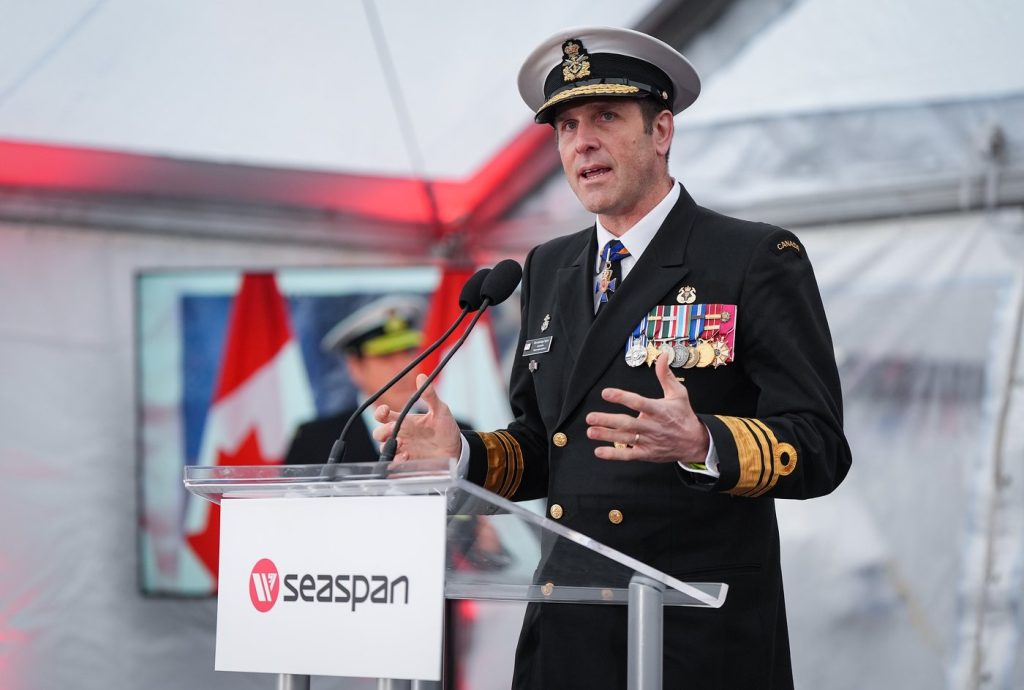OTTAWA – Vice-Admiral Angus Topshee, the commander of the Royal Canadian Navy, stated that the service is still grappling with a recruitment crisis and foresees significant challenges in the next four to five years. This warning comes two years after he posted a video online highlighting the critical state of recruitment and serious challenges that could hinder the navy's ability to meet force posture and readiness commitments.
In a recent interview with The Canadian Press, Topshee acknowledged some signs of progress, particularly with the introduction of the new one-year Naval Experience Program. He believes this program is instrumental in attracting new recruits and encouraging them to pursue military careers. However, he pointed out that the navy continues to face shortages of essential personnel, specifically in information technology and marine technicians, which are crucial for maintaining warships at sea.
A deficiency in marine technicians can prevent ships from leaving port, but Topshee noted that there are indications those positions are beginning to be filled. He expressed optimism, stating that the navy is on track to recruit around 70 percent of the set target for marine technicians this year; however, this target is intentionally low, reflecting only half of the actual need. He emphasized the urgency of implementing alternative strategies to recover more swiftly.
As for weapons engineers, Topshee reported that only 17 percent have been recruited this year, indicating a significant gap. He mentioned plans to enhance the visibility of this career path to attract more young people. The navy's recruitment issues have escalated sharply over the past decade, with the current force of approximately 17,100 sailors falling short by around 1,600 personnel, and certain naval occupations facing shortfalls of around 25 percent.
On a positive note, Topshee indicated that the navy has made strides in addressing its training backlog, having doubled the production of naval warfare officers compared to the ten-year average. He anticipates tripling that production next year, allowing for sustainability in leadership roles within the navy.
Despite the successes in some recruitment areas, such as naval technical officers, which have surpassed expectations, the navy still struggles to fill other vital roles, including cooks. Topshee highlighted the importance of cooks in preparing multiple daily meals for ship crews and noted that many potential candidates do not envision themselves in such positions.
To counter this perception, Topshee outlined a dual pathway for aspiring cooks: one leading to civilian college training and another offering military service with the benefits of travel and skill acquisition, stressing that the navy would cover training costs.
The Royal Canadian Navy is actively reaching out to school guidance counselors to disseminate information about available job opportunities. Chief of the Defence Staff Gen. Jennie Carignan echoed this in August, citing government surveys revealing that a significant barrier to recruitment is the lack of awareness among students regarding the diverse roles available within the military.
Topshee is keen on communicating a compelling message that resonates with potential recruits. He referenced the tagline of the Australian Navy, "Live a story worth telling," as a model for conveying the unique experiences and skills that service in the Navy can provide, all within a high-tech environment alongside exceptional colleagues.
The Naval Experience Program has emerged as a major success in recruitment, providing a one-year training and sailing experience for several hundred potential recruits, giving them insights into various naval careers. Since its launch in March 2023 as a five-year pilot program, it now constitutes about one-third of all new navy recruits. Notably, around half of those who participate in the program choose to remain in hard-sea trades, while approximately 80 percent stay within the military overall.
Topshee also expressed hope that the recently announced military pay raises and signing bonuses, along with plans to acquire new high-tech equipment such as submarines, will significantly enhance recruitment efforts. He remarked that the navy currently has no issues attracting submariners, suggesting that high-profile contracts could generate more visibility and interest among Canadians.











